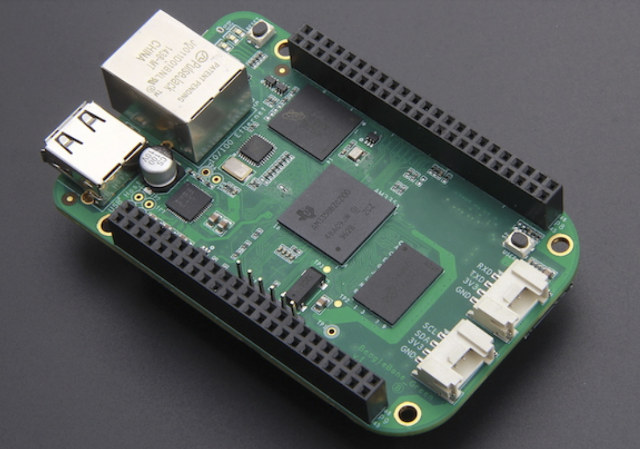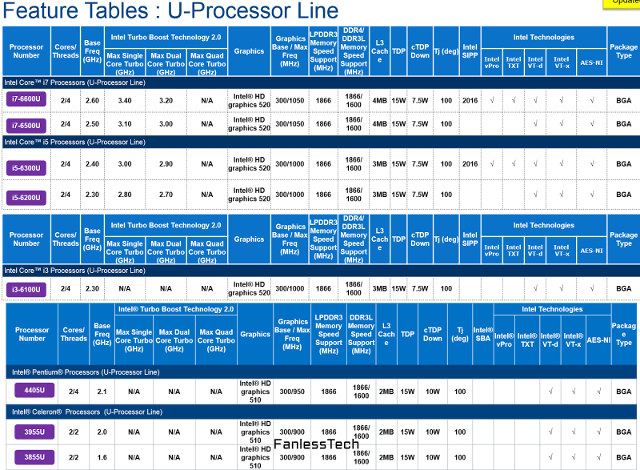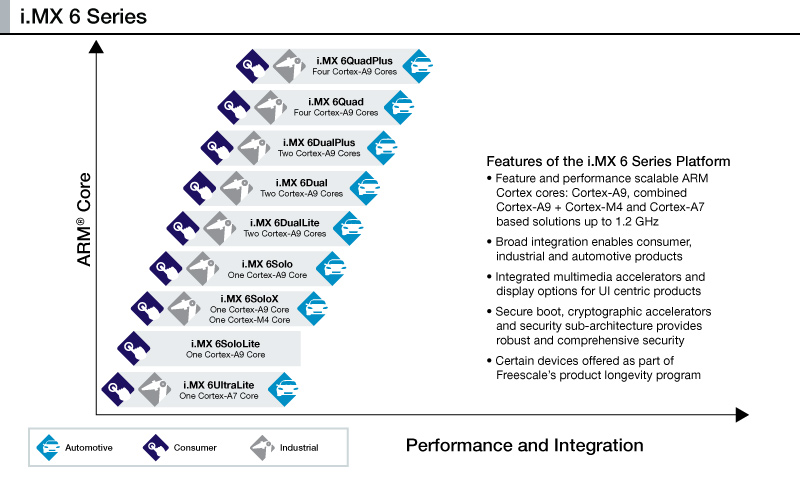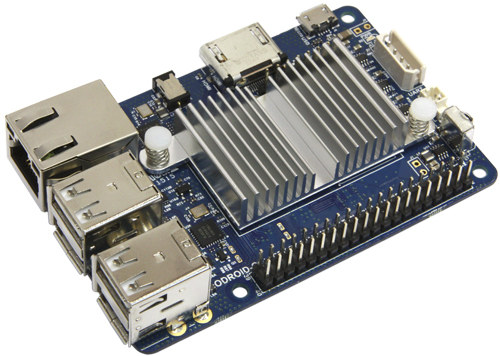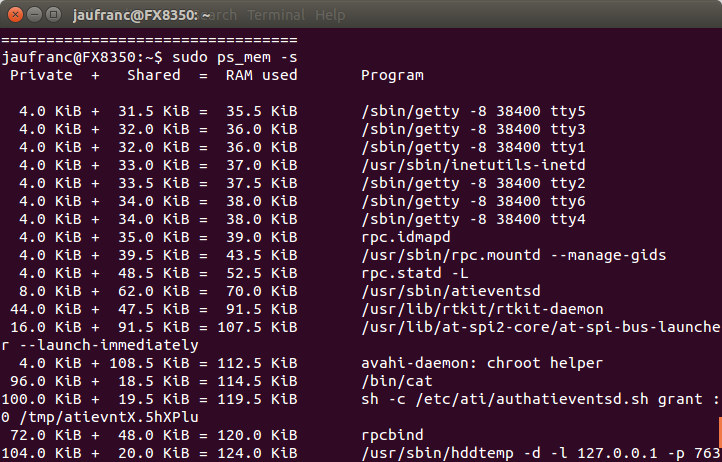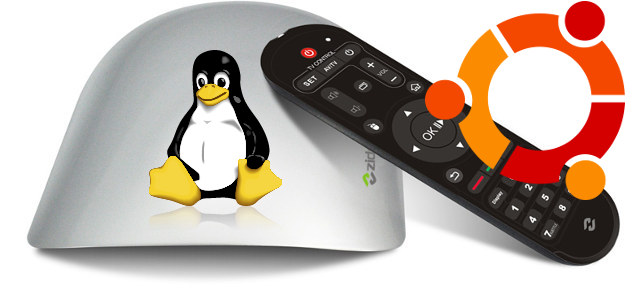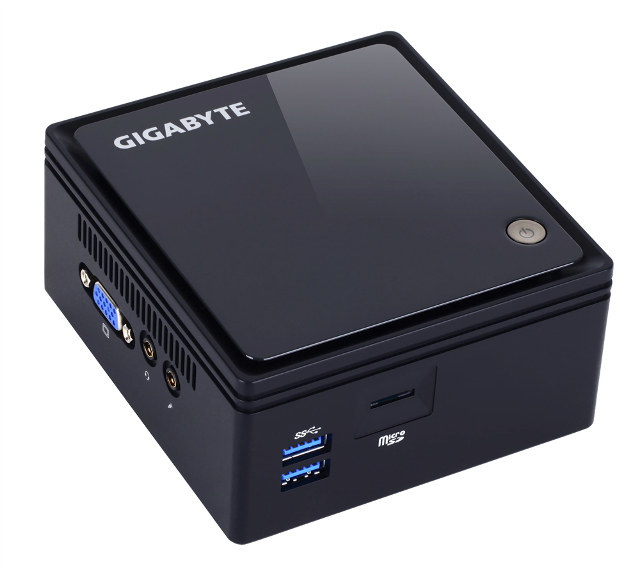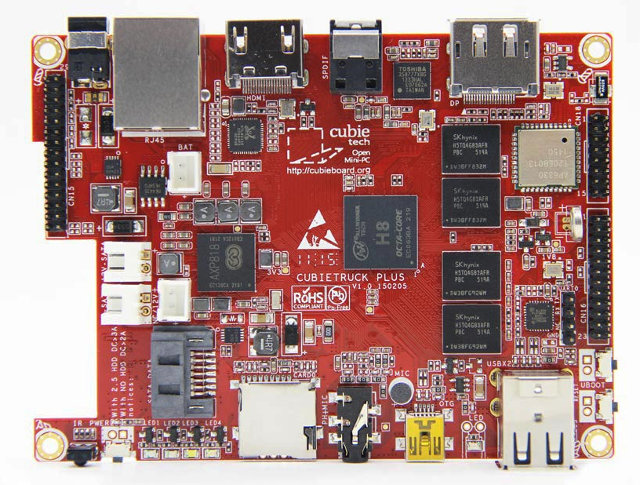The original BeagleBone launched in 2011 $89, then Beagleboard.org released an updated version with HDMI, a faster processor, and more RAM called BeagleBone Black for $45 in 2013, possibly as a competitor to the Raspberry Pi, and since then the price has bumped up to $55 because of a larger eMMC flash. There’s now a new version – and a different color – with BeagleBone Green selling for $39 on SeeedStudio with shipping starting on August 20, 2015. BeagleBone Green board specifications: SoC – Texas Instruments Sitara AM3358BZCZ100 Cortex A8 @ 1 GHz with NEON + PowerVR SGX530 GPU System Memory – 512 MB DDR3L @ 800 MHz Storage – 4GB eMMC + micro SD slot USB Access to USB0, Client mode via Micro USB Access to USB1, Type A Socket, 500mA LS/FS/HS Serial Port – UART0 via 6-pin 3.3V TTL header (populated) Ethernet – 10/100M Ethernet , RJ45 Expansion […]
Intel Skylake-U Processors Run as Low as 7.5W TDP. A Closer Look at Configurable TDP
I try to mostly cover low power systems on this blog, so when it comes to x86 processors I have a cut off TDP of 10 Watts. The next generation of Intel Skylake processors have a TDP of 15 Watts, but when I read Skylake-U lineup post on FanlessTech, I discovered Intel processors also have a configurable TDP option, and in the case of Skylake-U processor their configurable TDP (cTDP) can be as low as 7.5W or 10W depending on models. U-Processor family has Pentium and Celeron processors, but also Core i3, Core i5 and even Core i7 processors such as i7-6600U and i7-6500U clocked up to 3.4 GHz and all with a 15W TDP, but you’ll also notice a column called “cTDP Down” showing 7.5W and 10W values, which shows the great progress made by Intel with regards to low power design. So I decided to look into configurable […]
Freescale i.MX6 DualPlus and QuadPlus SoCs Gets Faster 2D and 3D Graphics, Higher Memory Bandwidth
Freescale unveiled three new models for its i.MX 6 family processor for consumer, industrial and automotive markets in May. Two models are an upgrade to existing i.MX6 Quad and i.MX6 Dual processors, as the new i.MX 6QuadPlus and i.MX6DualPlus processors features four and two Cortex A9 cores, together with improved 2D and 3D GPUs delivering around 50% faster performance, an “optimized” SDRAM controller, more SRAM, and a prefetch and resolve engine. The third model, i.MX 6UltraLite, features a single ARM Cortex A7 core and hardware security, and targets applications such as electronic Point Of Sales (ePOS). That means there are now 9 i.MX6 processors, and today, I’ll focus on the two new “Plus” versions. Since they are based on the original i.MX6 Quad and i.MX6 Dual processors, the best way to have a look at these is to compare them to their predecessors. Features i.MX 6QuadPlus i.MX 6Quad i.MX 6DualPlus […]
Hardkernel ODROID-C1+ Development Board is Now Shipping for $37
We already knew Hardkernel was working on ODROID-C1+ development board, an update the popular ODROID-C1 board with the same Amlogic S805 processor, storage and memory, but with a standard HDMI port replacing the micro HDMI port, I2S support, better micro SD card and HDMI-CEC support, an micro USB OTG port that can be used to power the board, and an included heatsink. The board is now up for sale for $37, or just $2 more than the original ODROID-C1 board. ODROID-C1+ specifications: SoC- Amlogic S805 quad core Cortex-A5 processor with a quad core Mali-450MP2 GPU System Memory – 1GB DDR3 Storage – eMMC 4.5 HS200 module socket for up to 64GB storage, and UHS-1 SDR50 micro SD slot Video & Audio Output – Type A HDMI port with CEC support Connectivity – Gigabit Ethernet USB – 4x USB 2.0 host ports, 1x micro USB OTG port Expansion Headers 40-pin Raspberry […]
ps_mem Shows Programs RAM Usage in Linux
There are several ways to see how much RAM is used in a Linux system with tools like free, vmstat, top, etc…, but today I’ve come across ps_mem which displays the RAM used for each program in a neat way. The post on lintut.com explains how to install it on Centos / Fedora:
|
1 |
yum install ps_mem -y |
As a Ubuntu user, I immediately tried apt-get install ps_mem, but there isn’t such package. After running apt-file search, I found it in w3af-console package:
|
1 2 3 |
sudo apt-get install w3af-console sudo chmod +x /usr/share/w3af/core/controllers/profiling/ps_mem.py sudo ln -s /usr/share/w3af/core/controllers/profiling/ps_mem.py /usr/sbin/ps_mem |
Another way to install the script is to simply get it from Github. Running the command without options will list of programs with RAM usage from the smallest to the largest:
|
1 2 3 4 5 6 7 8 9 10 11 12 13 14 15 16 17 18 19 20 21 |
sudo ps_mem Private + Shared = RAM used Program 4.0 KiB + 33.0 KiB = 37.0 KiB inetutils-inetd 4.0 KiB + 35.0 KiB = 39.0 KiB rpc.idmapd 4.0 KiB + 39.5 KiB = 43.5 KiB rpc.mountd 4.0 KiB + 48.5 KiB = 52.5 KiB rpc.statd 8.0 KiB + 62.0 KiB = 70.0 KiB atieventsd 44.0 KiB + 46.5 KiB = 90.5 KiB rtkit-daemon 96.0 KiB + 18.5 KiB = 114.5 KiB cat ............ 150.5 MiB + 5.1 MiB = 155.6 MiB gimp-2.8 186.5 MiB + 9.5 MiB = 196.0 MiB plugin-container 270.8 MiB + 12.1 MiB = 282.9 MiB compiz 348.5 MiB + 19.0 MiB = 367.5 MiB nautilus 409.3 MiB + 3.4 MiB = 412.7 MiB thunderbird 393.8 MiB + 28.0 MiB = 421.8 MiB Xorg 2.1 GiB + 11.0 MiB = 2.1 GiB firefox --------------------------------- 5.0 GiB ================================= |
You can also check the full command line for the programs: sudo ps_mem -s Private + Shared = RAM used Program 4.0 KiB + 31.5 KiB = 35.5 KiB /sbin/getty -8 38400 tty5 4.0 KiB + 32.0 KiB […]
How to Install and Run Linux on Zidoo X1 TV Box
Now that I’ve completed Zidoo X1 review, I’ve decided to try out Ubuntu on the mini PC following a tip from one reader that Orange Pi 2 images can run on the platform since it’s based on the same Allwinner H3 processor, but with some limitations such as WiFi not working. There are three Linux firmware images for Orange Pi 2 on the download page: Lubuntu, Raspbian, and Debian server. I decided to go with Lubuntu image. First you need to download Lubuntu_1404_For_OrangePi2-mini2_v0_8_0_.img.xz image from Google Drive or Baidu, uncompress it, and then flash the image to a Class 10 micro SD card in Windows or Linux. I ran the following command line in a computer running Ubuntu 14.04:
|
1 |
sudo dd if=Lubuntu_1404_For_OrangePi2-mini2_v0_8_0_.img | pv | sudo dd of=/dev/sdX bs=16M |
Where X in sdX is the letter of your micro SD card, which you can find with lsblk. In some platforms, it might be /dev/mmcblkX instead of /dev/sdX. Once it’s […]
Gigabyte GB-BACE-3000 is a Fanless mini PC Powered by Intel Celeron N3000 Braswell Processor
Systems with the latest low power Intel Braswell processors are starting to hit the shelves, and after ASRock Beebox, some Braswell laptops, Intel Braswell NUCs, and some ASRock motherboards, here’s another Braswell mini PC with Gigabyte BRIX GB-BACE-3000 based on Intel Celeron N3000 dual core processor. GB-BACE-3000 specifications: SoC – Intel Celeron N3000 dual core processor up to 2.08GHz with Intel Gen8 HD Graphics (4W TDP) System Memory – 1x SO-DIMM DDR3L 1.35V slot @ 1066/1333/1600 MHz up to 8GB RAM Storage – 2.5” thickness 7.0/9.5mm Hard Drives (1 x 6Gbps SATA3), 1 x Micro SD card slot Video Output HDMI up to 3840×2160 @ 30 Hz VGA up to 1920×1200 @ 60 Hz Audio – Realtek ALC255 audio codec, 1x Audio-out / Mic-In, HDMI Connectivity – Gigabit LAN (Realtek RTL8111H), Wi-Fi 802.11ac + Bluetooth 4.0 (M.2 module) USB – 2 x USB 3.0 ports (front panel), 2 x USB […]
Cubieboard 5 (aka CubieTruck Plus) Development Board is Powered by Allwinner H8 SoC
Merrii unveiled H7 Hummingbird board based on Allwinner H8 octa core Cortex A7 processor a few days ago, but it turns out they’ve not been the only ones working on a board with that processor, as Cubietech also showcased prototypes of Cubieboard 5, which they also call CubieTruck Plus, around mid July. They’ve only shown pictures of the board, without much more information, but we can derive most specifications from the pictures: SoC – AllWinner H8 octa-core ARM Cortex-A7 processor @ up to 2.0GHz with PowerVR SGX544 GPU @ up to 700MHz System Memory – 2GB RAM (4x H5TQ4G63AFR-PCB DDR3 chips) Storage – FORESEE eMMC or NAND flash + micro SD card slot + SATA port (via GL830 USB 2.0 to SATA bridge) Video Output – HDMI and DisplayPort Audio – HDMI, optical S/PDIF, 3.5mm headphone jack, built-in microphone Connectivity – Gigabit Ethernet (RTL8211E), dual band WiFi 802.11 b/g/n and […]


